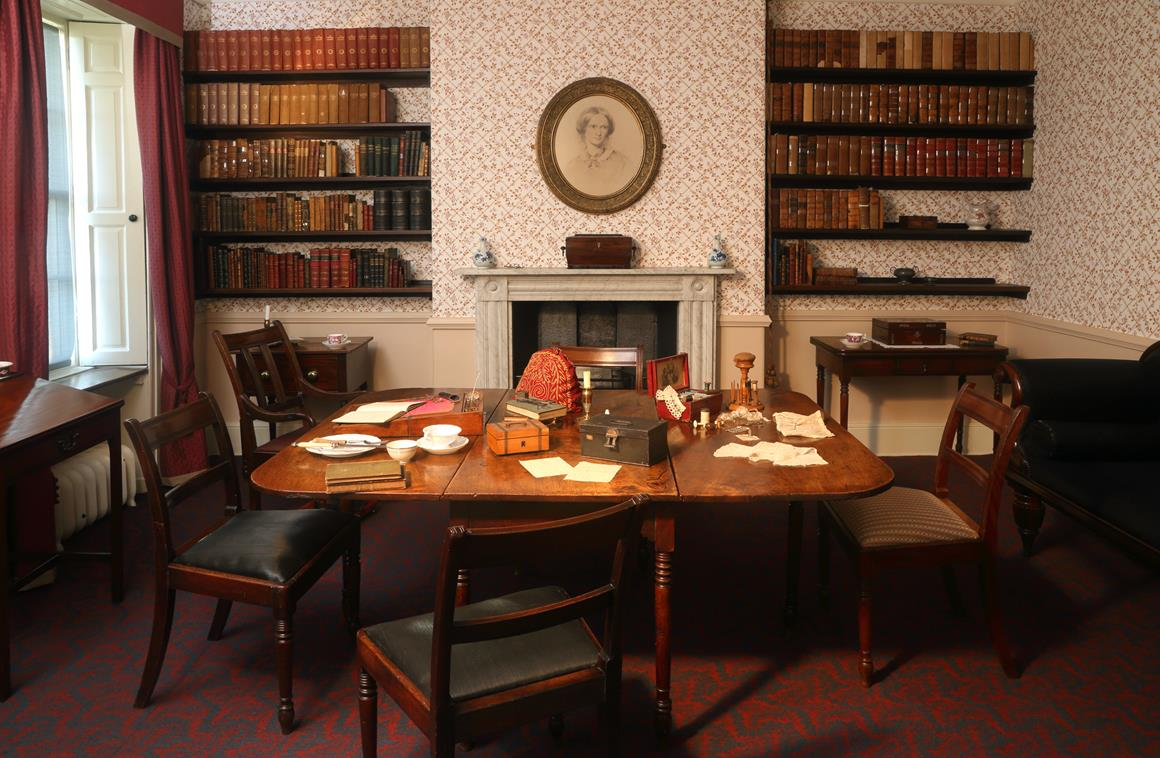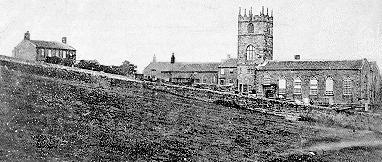It’s been a busy month. Last week, we were alerted to a Charlotte Bronte letter coming up for sale by auction, the next day! Sadly, we were unsuccessful in our bids as it sold for double the estimated price. We were disappointed that we couldn’t bring the letter back home to the place where it was written over 150 years ago. To lift our spirits though, we were thrilled to receive an exciting donation to the collection.
 An ivory quill-cutter which the Bronte family would have used to sharpen their quills before they put quill to paper! This was an important tool in the Bronte household and was probably used many times by the young Bronte children to achieve such miniscule handwriting inside their tiny books, and later in life for writing their letters, poems and novels.
An ivory quill-cutter which the Bronte family would have used to sharpen their quills before they put quill to paper! This was an important tool in the Bronte household and was probably used many times by the young Bronte children to achieve such miniscule handwriting inside their tiny books, and later in life for writing their letters, poems and novels.
We will display the quill-cutter from February 2015. The year 2016 marks 200 years since the birth of Charlotte Bronte and there will be celebrations all over the world.
We have been putting together a list of objects to exhibit at the Pierpont Morgan Library in New York to commemorate the bicentenary, which will include a Charlotte Bronte dress, a selection of her artwork, and one of the famous handmade ‘little books’.
The exhibition will travel between the National Portrait Gallery in London, the Parsonage, and finally the Pierpont Morgan Library in New York throughout 2016. keighleynews/Parsonage_Museum_in_Haworth/
 An ivory quill-cutter which the Bronte family would have used to sharpen their quills before they put quill to paper! This was an important tool in the Bronte household and was probably used many times by the young Bronte children to achieve such miniscule handwriting inside their tiny books, and later in life for writing their letters, poems and novels.
An ivory quill-cutter which the Bronte family would have used to sharpen their quills before they put quill to paper! This was an important tool in the Bronte household and was probably used many times by the young Bronte children to achieve such miniscule handwriting inside their tiny books, and later in life for writing their letters, poems and novels. We will display the quill-cutter from February 2015. The year 2016 marks 200 years since the birth of Charlotte Bronte and there will be celebrations all over the world.
We have been putting together a list of objects to exhibit at the Pierpont Morgan Library in New York to commemorate the bicentenary, which will include a Charlotte Bronte dress, a selection of her artwork, and one of the famous handmade ‘little books’.
The exhibition will travel between the National Portrait Gallery in London, the Parsonage, and finally the Pierpont Morgan Library in New York throughout 2016. keighleynews/Parsonage_Museum_in_Haworth/



